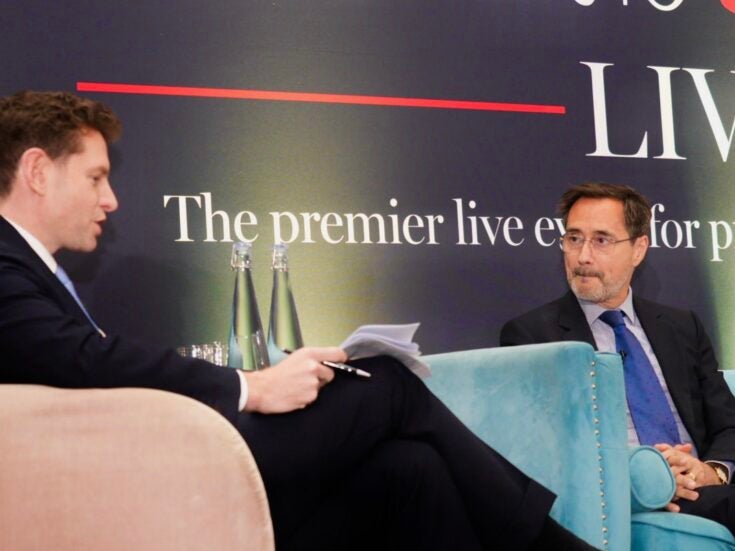Despite his apparent personal power, says Robert Amsterdam, the Russian president is increasingly restricted in his actions
Beset by rebellion, palace intrigue and plain exhaustion, Shakespeare’s Henry IV is given a moment of lucid self-awareness where he laments: ‘Uneasy lies the head that wears a crown.’
Nowadays such pleas for sympathy carry more than a touch of irony. People generally have little regard for the troubles of tyrants or their burdens of responsibility, instead preferring to imagine broad, sweeping powers that can shape the course of history.
Of course, that’s not really how the world works any more, even if the great power myth persists. A case in point is the recent experience of Russian president Vladimir Putin, who after almost sixteen years in power may be beginning to feel the weight of that crown.
Despite high approval ratings, lately things have not been going well for Russia’s modern-day tsar. The decision to drag the country into an intractable war in eastern Ukraine is seen as a costly foreign policy blunder. Elites and foreign investors are dismayed by the lack of any strategic response to the economic crisis. Meanwhile, tensions among security services, a bastion of Putin’s support base, culminated with the brazen assassination of opposition figure Boris Nemtsov in February on the Kremlin’s doorstep, followed by an unexplained chaotic ten-day absence by the president.
While focus has more recently shifted away from this drama, it’s abundantly clear that Putin’s standing has been downgraded. Instead of controlling a ‘vertical of power’, a more apt description may be that Putin has become a prisoner of the inflexible system he created, constrained by diminishing options and beholden to a corrupt patronage network.
Not that we would know it from his statements and actions, but Putin has been working hard to show he is in control with provocative military exercises and bomber flights in civilian European air space (the next MH17-like accident could happen at any time). He has boasted that he was ‘controlling everything’ during the annexation of Crimea and wants Russian people to believe that everything that happens is part of a plan. But it’s not.
This projection of power is an essential for any president whose authority rests on personality instead of institutions. In a state apparatus so dependent on one individual, propped up by competing elite networks and a pliant consumer-driven public, we are seeing that a weakened Putin is a more dangerous Putin. Rational economic policies, de-escalation and rapprochement are only possible from a position of strength, which is why we have returned to the Cold War spectre of nuclear blackmail.
The economic strain and the disaster in Ukraine have given rise to another clan war in Moscow, which broke out into the open with the abhorrent slaying of Nemtsov. While there are many theories regarding the authorship of the crime, few would disagree that Putin was responsible for creating the political conditions that led to his death — but that’s about where his control ends. Chechen leader Ramzan Kadyrov has seemingly gone out of his way to informally absorb responsibility for the killing, but whether he actually ordered the hit is doubtful (Putin awarded him three top state medals within nine days, which is hardly a reprimand for overstepping his bounds).
Alternatively, there is the theory that Nemtsov’s murder forms part of the larger clan war between an FSB faction led by Aleksandr Bortnikov and Nikolai Patrushev on the one hand and Kadyrov and his ally, the powerful former first deputy Vladislav Surkov, on the other. Either way, the outcome is bad for Putin, as it exposes his decreasing capacity to sort out intra-elite disputes.
In some respects we should feel pity, not scorn, for Putin. He is trapped in a political cul-de-sac with unattractive options, all of them more dangerous and risky than the last. He apparently cannot quit his job, walk away or step down. He is stuck in power, but cannot operate freely. For anyone to expect him to change course suddenly and implement more balanced policies to address the pressing issues would be to misunderstand the limitations of his current position.
Things are made even worse by the fact that Putin feels he has carte blanche to act without fear of meaningful reprisal, a dynamic which has rapidly developed under the watch of US president Barack Obama. Only a few years ago, the Russian leadership went through the motions of presenting their state through the lens of ‘sovereign democracy’ to be more palatable to the West. Now, the mask is off.
Putin will be around for a while yet, in my opinion. But his influence and ability to control events in Russia will not be the same.






